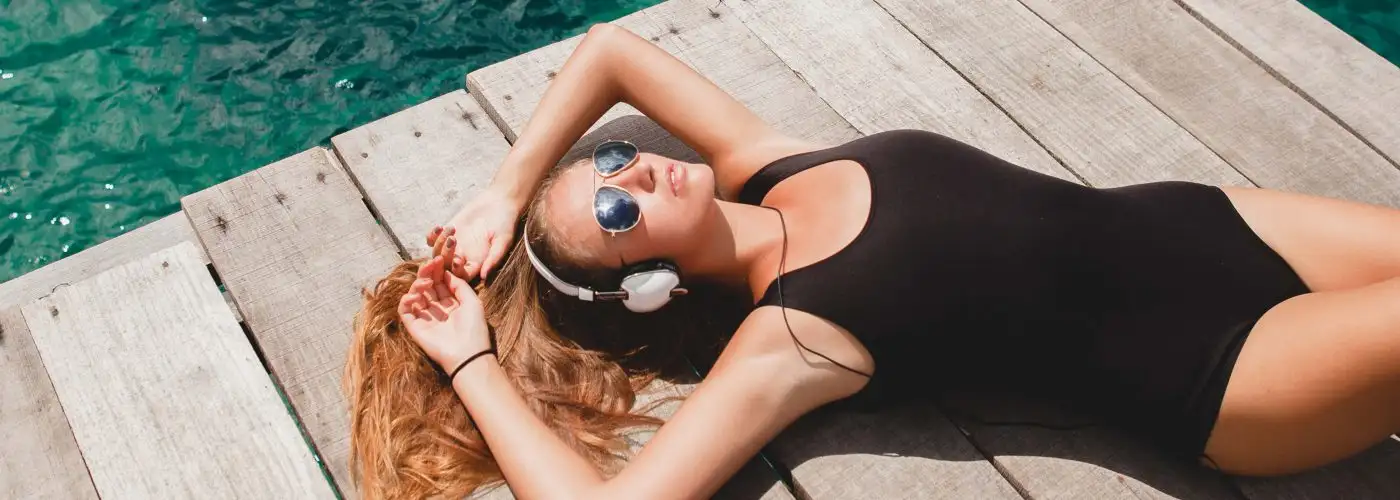Of all the advice dispensed to tropical travelers, one piece usually goes strangely unmentioned: Don’t wear black. It’s a simple tip, but it could keep you or your travel companions from getting very, very sick from Zika or another disease.
The story is a little complicated, but it begins with the mosquito species known as Aedes aegypti. Most species of mosquitoes feed only at night, but Aedes aegypti feeds at all hours of the day. “So if you’re getting attacked during the daytime,” says Joe Conlon, the technical advisor to the American Mosquito Control Association, “it’s generally Aedes aegypti.”
The species is prevalent in tropical and subtropical areas worldwide, and is found across the Southern U.S. and the Eastern Seaboard as far north as Connecticut. It can be extremely annoying. “They prefer the lower extremities on the body—from the knees on down,” Conlon says. “They truly are ankle biters.”
Make no mistake, though: Aedes aegypti is a genuine menace. Originally known as the yellow fever mosquito (and yellow fever, as it happens, is making a comeback worldwide), Aedes aegypti also carries Dengue fever, chikungunya—and Zika.
“They’re really the consummate transmitter of disease,” Conlon says.
That’s partly because Aedes aegypti is very skittish. If its victim, say, crosses her legs, Conlon says, “the mosquito will disengage, fly off and attack someone else.”
It doesn’t help that Aedes aegypti is a buffet eater from hell: The mosquito will take up to 15 partial meals from various victims before it’s, quote, fed to repletion
“That,” Conlon says, “makes them really dangerous. Because if they’re picking up a virus from someone else, they’re delivering it to you.”
Because they’re so dangerous, “Aedes aegypti is probably the most-studied mosquito on earth,” says Conlon. And the good news is that legions of entomologists have reached a consensus on this point: “It’s definitely attracted to darker colors,” Conlon says, “so make sure your clothing is light colored.”
In addition to leaving black clothing in the closet back home, Conlon suggests these other tips:
- Make sure your clothing covers all of your legs and arms—that means pants, not shorts. And make sure it’s loose fitting, because mosquitoes can bite through clothing. If you insist on wearing tight-fitting clothing, make sure it has a very tight weave. A suit of armor may do the trick, although Conlon professes to being a blue jeans guy himself. “Blue jeans are perfect. Nothing can bite through blue jeans,” he says. “Except for a pit bull.”
- Aedes aegypti is repelled by all EPA-registered mosquito repellants, including DEET, picaridin and oil of lemon eucalyptus. A 25-to-30 percent formulation of DEET should provide four hours of protection. (Conlon prefers a 19-to-20 percent formulation of picaridin, which repels ticks, as well. “It’s got a very light feel to it, and it doesn’t smell,” he says. “And it’s practically as effective as DEET.”)
Regardless of what type of repellant you use, if you go swimming or sweat, you need to reapply more frequently. “That’s when people tend to get in trouble,” Conlon says: “They don’t reapply as needed.”
And, it turns out that ditching black clothing when you travel can pay double dividends. There’s another fearsome insect that dark colors drive wild: African killer bees.
More from SmarterTravel:
- Everything You Need to Know About Visiting a Travel Clinic
- I Got Zika While Traveling—Here’s What No One Told Me
- Everything I’d Read About Cuba Was a Lie
Matt Jenkins is a former editor at Nature Conservancy magazine and the High Country News. He has written for The New York Times, Smithsonian magazine, Men’s Journal, and Saveur.
We hand-pick everything we recommend and select items through testing and reviews. Some products are sent to us free of charge with no incentive to offer a favorable review. We offer our unbiased opinions and do not accept compensation to review products. All items are in stock and prices are accurate at the time of publication. If you buy something through our links, we may earn a commission.
Related
Top Fares From
Today's Top Travel Deals
Brought to you by ShermansTravel
France: 8-Night Paris, Avignon & Nice...
Infinity Worldwide Vacations
 vacation
$2880+
vacation
$2880+
Poconos: 3 Nts in Garden of...
ResortsAndLodges.com
 hotel
$305+
hotel
$305+
7-Nt Canada & New England Cruise,...
Princess Cruises
 cruise
$839+
cruise
$839+




